- Home
- slideshows
- miscellaneous
- The Chinese scientist who claims to have edited baby DNA is downplaying reports that he is under house arrest. Here's a timeline of the controversy.
The Chinese scientist who claims to have edited baby DNA is downplaying reports that he is under house arrest. Here's a timeline of the controversy.
On November 26, He told an organizer of an international genome editing conference that he had altered the DNA of two baby girls. The Chinese scientist claimed he had altered the embryos for seven different couples, though only one person was pregnant as of November.

He described his research at the Second International Summit on Human Genome Editing on November 28 in Hong Kong. He said he felt "proud" and noted that a third gene-edited baby could be born as a result of his work.
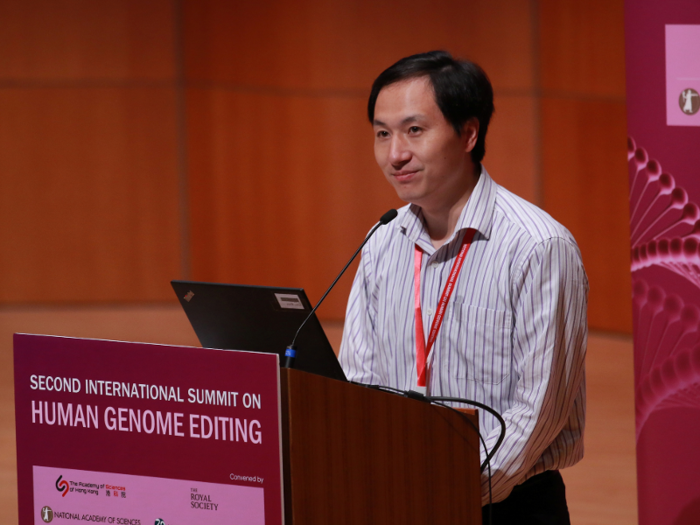
The researcher said "yes" when asked if the pregnancy was in an early stage, but he did not provide any more information.
He also said he submitted his research to a scientific journal for review, but he did not specify which publication he reached out to.
Southern University of Science and Technology of China in Shenzhen, where He conducted research, released a statement saying He's experiment was done "outside of the campus and was not reported to the University nor the Department."
Rice University, where Deem is listed as a professor of bioengineering, told STAT that it opened an investigation into the experiment.
China said on November 29 that it had suspended He's work, adding that his behavior seemed to violate Chinese law.
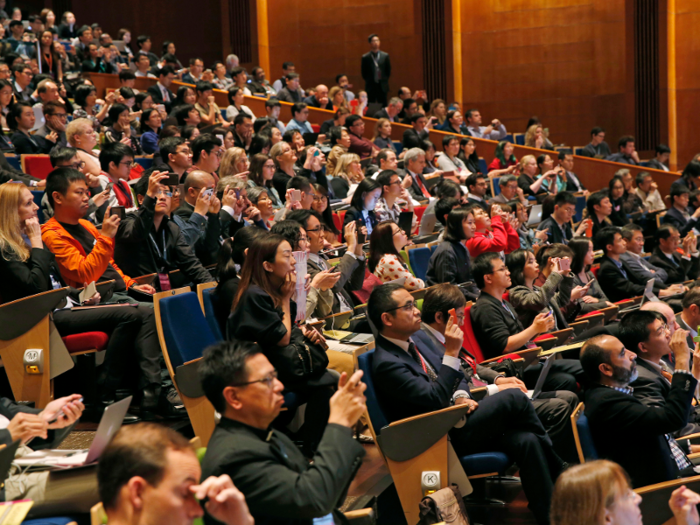
China's vice minister of science and technology, Xu Nanping, said He was still under investigation, but news reports had made it seem like he violated laws and broke "the bottom line of morality and ethics that the academic community adheres to," The New York Times reported.
He was initially supposed to speak again at the Second International Summit on Human Genome Editing, but his November 29 talk was canceled.
Robin Lovell-Badge — a British scientist who helped organize the summit — said He had chosen not to attend after learning that it would have been tough to find enough security for the event, The Times reported.
Lovell-Badge told The Times he did not regret allowing He to present his research at the summit, but giving him a second chance to speak may have been perceived as showing support.
Over the weekend of December 1 and 2, a local news outlet reported that He had been apprehended by the university and brought back to Shenzhen.
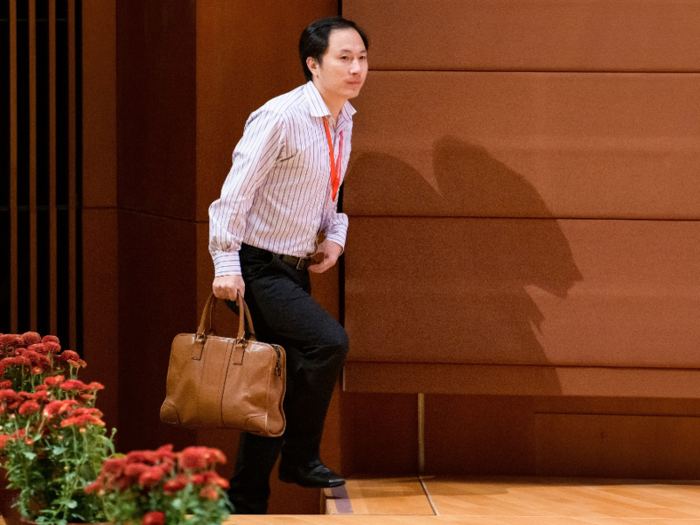
Several US publications cited the Hong Kong-based newspaper Apple Daily, which reported that He was "under house arrest" in Shenzhen.
The university denied on December 3 that it had detained He, but the scientist was not seen in public for about a month after the summit.
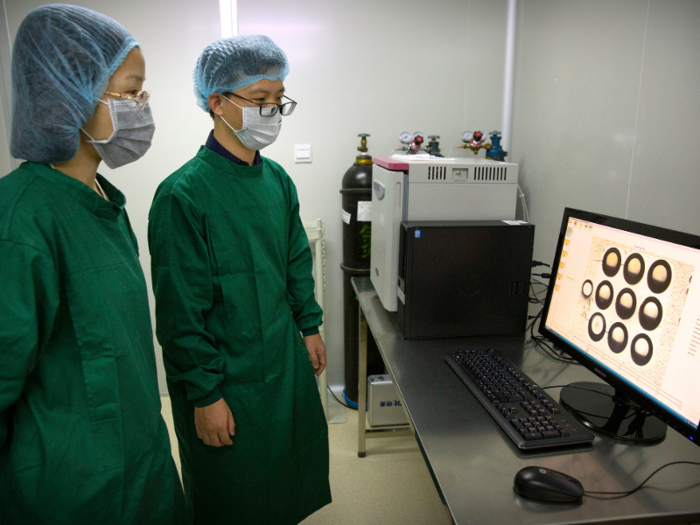
Source: Business Insider
He was spotted on the balcony of a university guesthouse in Shenzhen on December 26. Two days later, The New York Times reported that about a dozen guards were standing outside the apartment.
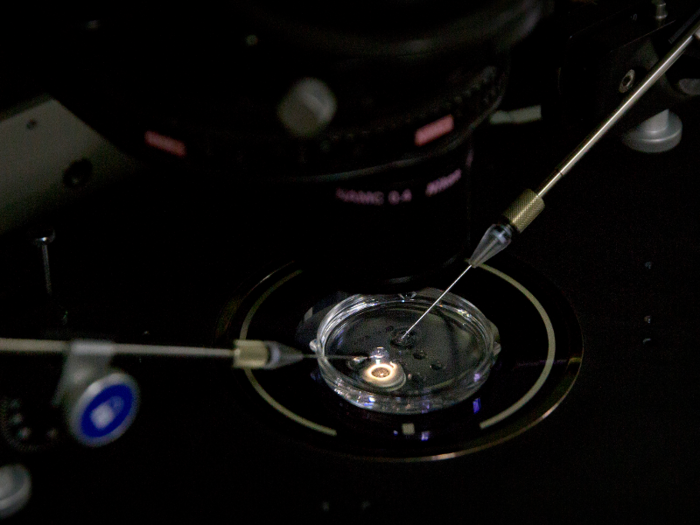
It was the first sighting of He since the conference in Hong Kong.
He has been living in a fourth-floor apartment at the guesthouse, which is located on the Southern University of Science and Technology campus, The Times reported.
The scientist could be seen speaking with a woman who was carrying a baby, according to The Times. She appeared to be his wife.
Hotel staff confirmed to The Times that He was staying in the apartment, but The Times did not know if the guards had an affiliation with police or university officials. They did not identify themselves.
Chen Peng, a co-founder of the gene-testing company Vienomics, told The Times that he had spoken to He after the summit.
"He is safe," Chen told The Times. "But I don’t know his exact whereabouts or what state he is in."
On January 7, The Telegraph reported that He could face the death penalty. A Beijing-based lawyer, however, says this is very unlikely.
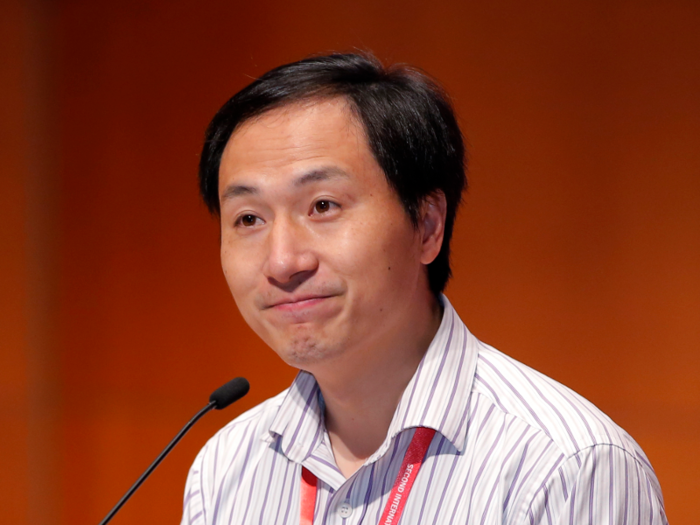
According to The Telegraph, Lovell-Badge and other British scientists said He could be charged with corruption and bribery, which can lead to the death penalty in China. He also seemed to break legally binding guidelines that prohibit scientists from implanting genetically altered embryos into humans, The Telegraph reported.
"He could be had up on all sorts of charges of corruption and being guilty of corruption in China these days is not something you want to be," Lovell-Badge told The Telegraph. "Quite a few people have lost their heads for corruption."
In an interview with the Australian Broadcast Corporation, however, Beijing-based lawyer Xingshui Zhang said He will most likely not face the death penalty because he is not a senior official in the Chinese government.
Two days later, STAT reported that He has been communicating with Lovell-Badge and another scientist who attended the summit. He has read Western news reports about himself and said he is doing well, downplaying claims that he is under house arrest and facing the death penalty.
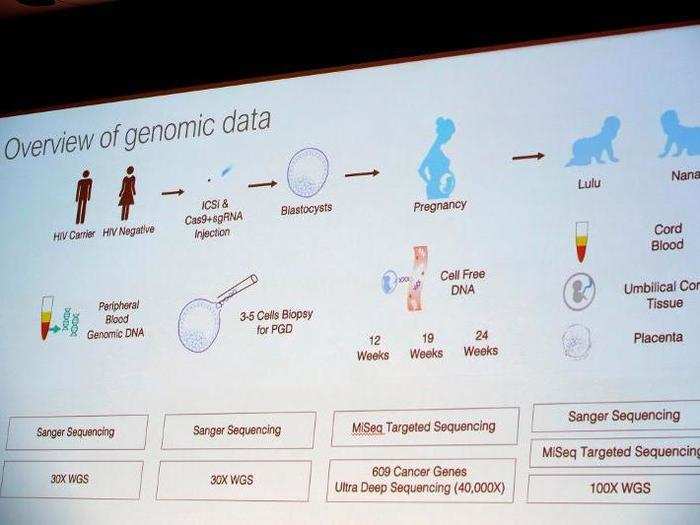
He told William Hurlbut, a neuroscientist and bioethicist at Stanford University, that he moved into the guesthouse "by mutual agreement," STAT reported.
The Chinese scientist said he is able to leave the guesthouse when he wants, adding that he has walked outside and visited the building's gym.
"He didn’t convey to me that he finds the guards a constraining force at all, but instead feels they are protecting him," Hurlbut said, adding that He was concerned about threatening emails he had gotten in response to his experiment.
The scientist has reportedly received death threats since speaking at the summit.
STAT also reported that He has exchanged emails with Lovell-Badge, the summit organizer who works as a scientist at the Francis Crick Institute in London. He reportedly told Lovell-Badge that scientists who say his experiment would make the babies more likely to die from the flu are drawing conclusions from ambiguous research.
Lovell-Badge has also walked back some of his recent comments about He. In an interview with BCC, Lovell-Badge indicated he had been speculating about the death penalty possibility.
Popular Right Now
Popular Keywords
Advertisement